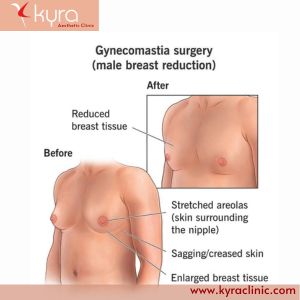Reshaping the Nose with the best treatment
Rhinoplasty, commonly referred to as a nose job, offers a wide range of benefits that can significantly impact both your appearance and the functionality of your nose. The surgery can improve breathing, enhance facial symmetry, correct birth defects, and adjust the nose's size and shape to better fit the facial balance. It's also used to fix a broken nose, address sinus problems, and even help with snoring issues. Beyond physical improvements, rhinoplasty can boost self-confidence and have positive effects on social interactions and personal feelings of well-being.
One of the key benefits of rhinoplasty is its ability to
address breathing issues that might be due to congenital problems or injuries.
Improving the airflow through the nasal passages can greatly enhance one's
quality of life. For those with aesthetic concerns, reshaping the nose can
create harmony among facial features and boost self-esteem, which can be
particularly impactful for individuals who have been self-conscious about their
nasal appearance for years. Sinus issues, such as constant congestion and sinus
pressure, can also be alleviated through rhinoplasty, providing relief from
chronic headaches and discomfort. Moreover, rhinoplasty can offer a solution
for those who snore, improving sleep quality for both the individual and their
partner.
Rhinoplasty surgeonsin Ludhiana can correct a variety of birth defects, restore facial
symmetry, and even address issues stemming from bullying by improving one's
appearance. It's also noted that the procedure can have a positive impact on
one's career, as increased confidence and a more harmonious appearance can
contribute to improved job performance and potentially influence career
advancement.
However, like any surgical procedure, rhinoplasty comes with
risks such as complications from anesthesia, bleeding, infection, numbness,
difficulty breathing, dissatisfaction with the results, and the need for
revision surgery. It's crucial to have a detailed consultation with a skilled
surgeon to understand both the potential benefits and risks associated with the
procedure.
Recovery from rhinoplasty involves a period of swelling and
bruising, with most of the swelling subsiding within a year. It's important to
follow post-operative care instructions closely to ensure the best possible
outcome. For those considering rhinoplasty, it's essential to have realistic
expectations and understand that results vary from person to person. The
procedure should be tailored to each individual's unique facial structure and
aesthetic goals.
Nose job surgery, medically known as rhinoplasty, is
designed to change the appearance and function of the nose. This surgical
treatment encompasses a range of techniques and procedures to address various
aspects of the nose's structure and aesthetics. Here are some of the key
features and components of nose job surgical treatments:
Customization to
Patient Needs
Rhinoplasty is highly customized to meet individual patient
needs and goals, whether for aesthetic enhancement, functional improvement, or
both. Surgeons work closely with patients to understand their desires and to
develop a surgical plan that addresses their specific concerns.
Anesthesia
The procedure is typically performed under general
anesthesia or local anesthesia with sedation to ensure patient comfort
throughout the surgery.
Surgical Approaches
There are two main surgical approaches to rhinoplasty:
Open Rhinoplasty: Involves making an incision across
the columella (the small strip of tissue between the nostrils) to lift the skin
off the nose, allowing for significant modifications.
Closed Rhinoplasty: Incisions are made within the nostrils,
resulting in no visible scars, and typically involve less swelling and a
quicker recovery time, although it may not allow for extensive changes.


Comments
Post a Comment